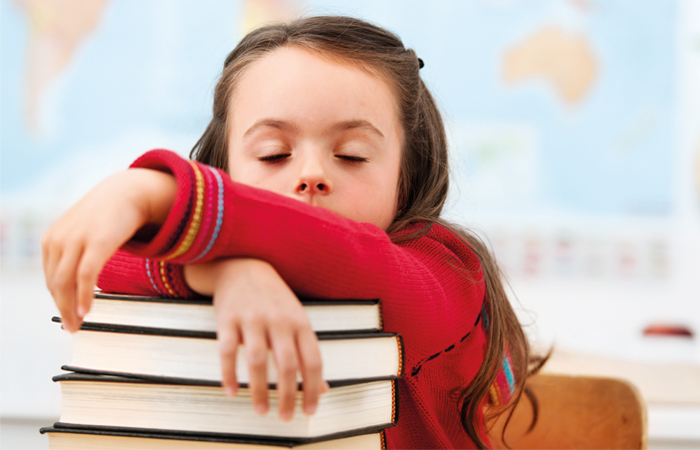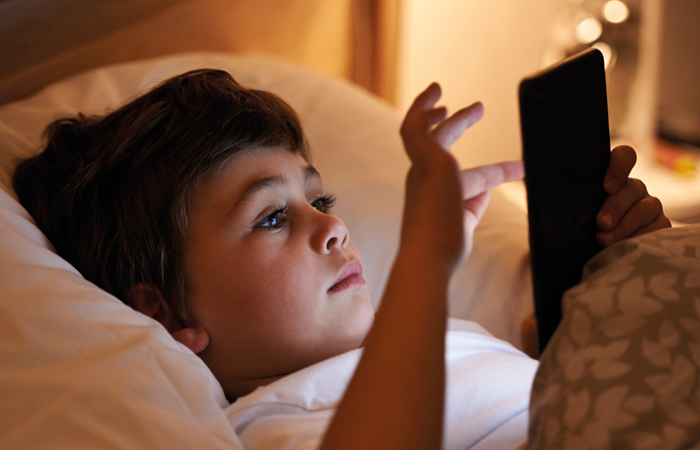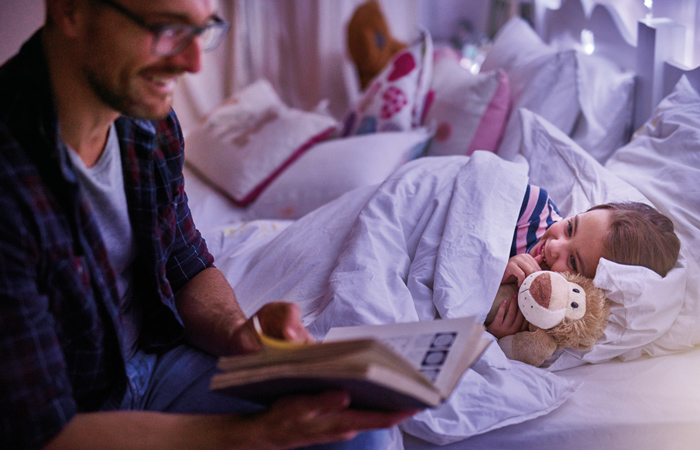OTC

Sleeping duty
In OTC
Bookmark
Record learning outcomes
Sleep problems in children can cause obesity, lower immunity, mental health issues and poor performance at school. So what can pharmacy do to help?
In today’s hectic world, many of us are used to feeling tired a lot of the time, either as a result of a busy life or as a side effect of stress. However, a worrying trend is emerging in which more children are being treated for sleep disorders than ever before.

An analysis of NHS data by a BBC Panorama programme earlier this year revealed that hospital attendances in England for children under the age of 14 years with sleep disorders have tripled in 10 years. Prescriptions of the sleep medication melatonin have also increased 10-fold over the same period.
As in adults, this is an issue to be taken very seriously. Insomnia can not only lead to irritability, low mood and an inability to function properly the next day, but can also cause serious health problems. In children, we know that poor sleep has been linked to an increased risk of obesity, lower immunity, mental health issues and poor school performance, including problems with concentration and behaviour – all of which can have an impact on a child’s later life.
The root of the problem
There are many reasons why we can have trouble getting off to sleep, and staying asleep, but in general terms insomnia is usually classified as primary or secondary.
Primary insomnia occurs in and of itself, whereas secondary insomnia is caused by outside factors. These can include stress and depression, the side effects of certain medications or chemotherapy, pain and physical illness, and even by being overtired or exhausted. Both forms of insomnia are considered chronic if they are frequent and regularly occurring.
So why are more children suffering from sleep problems?
Vicki Dawson, founder and chief executive of The Children’s Sleep Charity, says there are a number of potential reasons, including the now common use of technology before bedtime. “We know that screen activities interfere with the production of the sleep hormone, melatonin, but there is a real lack of awareness around the impact that screens can have on sleep. Many children are given tablets in the run up to bedtime, which then impairs their ability to fall asleep.”
When it comes to the use of electronic devices in the evening Dave Gibson, sleep expert and founder of thesleepsite.co.uk, points out that the problems they cause for children’s sleep are a relatively new phenomena.
“It used to be that when it went dark we went to sleep, but gadgets including TV, phones, iPads, and games reverse that now,” he says. “These over-stimulate the brain at a time when children traditionally would have been winding down (perhaps with a bath and bedtime story) and also emit blue light which tricks the brain into thinking it is still daytime, preventing the release of melatonin.”
Aside from gadgets there are other sensory factors such as temperature (too hot or too cold), noise and lighting that can all have a detrimental impact on getting to sleep, and quality of sleep.
Dave also says that “poor diet equals poor sleep”. Just as in adults, we know that caffeinated products in particular, and those containing sugar can impact on sleep. Vicki adds that children’s “hectic lifestyles” including things such as after-school clubs means that “in some cases there isn’t the time for a planned wind down time in the run up to bedtime”.
This same lack of structured – and gadget-free – pre-sleep time is something flagged up by Lisa Artis, spokesperson for The Sleep Council, who stresses that there seems to be “a lack of importance placed on having a good bedtime routine and set bedtime”, which is important because “kids thrive on routine”.
However, a lack of routine is not always something that can be controlled, as Vicki explains: “For older children it may be around changes in their circadian rhythm, because teenagers tend to release melatonin later in the evening, meaning they find it harder to fall asleep, creating a delayed sleep phase. This in turn means that they are tired when it is time to get up for school the next morning.”
Vicki says The Children’s Sleep Charity has also seen “an increase in the number of children who have anxiety issues which impact on their sleep”, and Dave believes secondary schoolchildren in particular “seem to be under more stress due to increased homework”.
Another factor, according to Dave, is “decreased outside exercise”. Regular exercise, particularly in the afternoon, can help deepen sleep, and exercise is also a great stress buster. But there is a caveat: strenuous exercise in the two hours before bedtime can decrease the ability to fall asleep.

Melatonin use
Melatonin is a naturally occurring hormone produced by the brain’s pineal gland when it is dark, which helps to regulate our body clock and sleep patterns.
The levels in our bodies decrease when we encounter light again in the morning, or if we are exposed to unusual light patterns, such as when travelling over a large number of time zones or by working late-shift jobs.
These kinds of events can disturb our sleep patterns, so melatonin supplements are widely used around the world by people with insomnia, for jet lag, anxiety and even as an anti-ageing remedy, as they are thought to help users get to sleep faster and sleep more deeply.
It used to be possible to buy melatonin in the UK over the counter, but current UK law effectively bans the sale of the supplement in stores and online.
Just one melatonin product – called Circadin – is licensed for use in the UK. It can only be obtained with a prescription and comes in the form of a ‘prolonged-release’ tablet. Prolonged-release means that the drug treatment continues working over a number of hours as the active ingredient is released slowly in the body. This tablet is licensed for treating sleep disorders over a short period of time in adults who are aged 55 or over. It is not licensed for use in any other age group, and so using prolonged-release melatonin in children and young people under 18 is described as ‘off-label’.
Other melatonin products, some in the form of immediate-release capsules, tablets or liquids, are available from specialist suppliers and on the internet. These are not licensed for use in any patient group in the UK and so are known as unlicensed. It is best to refer anyone requesting such products to the pharmacist.
Side effects in children
NICE says that based on recent small studies done in the Netherlands and Canada on melatonin use in children and young people with ADHD, unlicensed melatonin appeared relatively safe in the short term (using it for up to four weeks) and medium term (using it for up to 18 months). However, all the studies were small so infrequent side effects may not have been detected, and the safety of long-term melatonin use in children and young people with ADHD is unclear.
Dave Gibson, sleep expert and founder of thesleepsite.co.uk, says his advice to parents and carers is that “whilst melatonin is an OTC drug in the USA, it is prescription only in the UK, owing to its low threshold for overdose. It should only be used in the very short term to reset the body clock, and not as a long-term treatment for insomnia.”
NICE recommends the main treatments suitable for children and young people with sleep disorders are non-drug treatments, including good sleep hygiene. Good sleep hygiene includes things that can be done at home to help sleep, such as having fixed times for going to bed, avoiding exercise and eating a heavy meal late at night, keeping the bedroom comfortable and relaxing near bedtime.
Long-lasting problems
If the underlying causes surrounding children’s sleep issues are not addressed, there can be long-lasting problems associated with sleep deprivation in four to 14 year olds.
In fact, Lisa says sleep issues in childhood can impact into adulthood: “There is lots of research that proves that lack of sleep contributes to obesity issues, hyperactivity in children and so on. Children who don’t sleep well suffer in school as it impacts on memory and concentration, and lack of sleep can also make children irritable, irrational and emotional.”
Dave says this poor behaviour, moodiness and an inability to concentrate at school is because “lack of sleep affects both the amygdala (the mood centre of the brain) and the hippocampus (the region of the brain which is critical for storing new information”. He even goes as far as to blame sleep deprivation in children for “anger management issues, because they are at their wits’ end,” and adds the stark warning that “if you set a child up with bad sleep habits they will be with them for life.”

Pharmacy intervention
Despite that worrying thought, there is much that pharmacy staff can do to advise children and their parents on how to tackle these kinds of sleep problems – and the experts seem to agree that the key is implementing a good bedtime routine.
“A bedtime routine is very important to keep children’s body clocks on track,” says Vicki, who explains that the same order of events should be carried out consistently each night. “It should begin an hour before bedtime by ending all screen activities. Instead, hand-eye co-ordination activities can help in the run up to bedtime, and planned quiet activities are essential. Draw the curtains so the environment is dark, as this can help melatonin to be produced. Some children find a bath beneficial in this period of time, and reading or a bedtime story can be a great way to end the day as well.”
As well as a regular routine, Lisa says creating the right environment for sleep is important too: “Bedrooms should be cool, quiet and dark, and try to keep them as tidy as possible. Also make sure children are sleeping on a comfortable bed and have appropriate bedding.”
Another thing to point out to parents and carers is to encourage children not to take their worries to bed – whether these are about school or daily life. Some parents find it useful to assign a ‘worry period’ during the evening or late afternoon to talk with their child about things that are on their mind and get any troubles out in the open so they can be addressed.
Lisa also advises avoiding sending children to bed for being naughty. She says: “It makes the bedroom a stressful and/or upsetting environment – not what you want when it comes to sleep.” And Dave suggests that children are actually rewarded for good sleep habits. “Educate your children about the importance of sleep and give them rewards for adopting a sleep routine,” he says, adding that this is something that the whole family can be part of. “Sleep hygiene is a family issue and it’s about boundaries. It’s about role modelling the behaviour you don’t want the child to have any more, so then the child is not isolated as the only one having the problem. What works for the family will work for the child. It’s logical when you undo it like that.”
Being on the frontline of healthcare as essential members of the wider primary care team, pharmacy staff are ideally placed to help children sleep better. Many people would not think to go to their GP about issues around sleep so, as ever, pharmacy is often the first place where these kinds of problems are flagged up. Taking parents’ concerns about their children’s lack of sleep seriously, and taking the time to listen and advise them, can be the first step to help these families get back on track.
Bedrooms should be cool, quiet and dark, and try to keep them as tidy as possible
